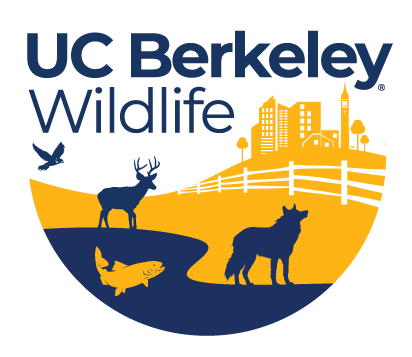Please join us Today, 2/23/24 from 12noon-1pm for a talk from Axel Hunnicutt, CDFW Wolf Coordinator for a talk titled: "The Return of an Apex Predator: California’s Conservation of Gray Wolves,"
The talk will take place in 36 Mulford Hall. Or you can join by zoom using this link. Please see below for a short description of the talk.
In this presentation, I will speak on the historic return and current status of gray wolves in California, and the social, ecological, and economic challenges posed by their recolonization. I’ll share CDFW’s efforts for conservation and recovery planning of the species, as well as our efforts in the field of population monitoring and community engagement. Lastly, as the new state wolf coordinator, whose career has largely been spent working with African carnivores, I’ll link the parallels of predator management and conflict across continents, highlighting the hope of success for the future of wolves in California.
Upcoming Events
There are no upcoming events, please check back for future listings.
Past Events
Axel Hunnicutt, CDFW Wolf Coordinator: The Return of an Apex Predator: California’s Conservation of Gray Wolves
Artist, Writer and Naturalist James Prosek speaking in the Wildlife Seminar on 2/9/24 from 10-11am
James Prosek is an artist, writer, and naturalist whose work pays homage to the history of art and natural sciences while addressing contemporary environmental concerns. His diverse body of work is the result of extensive travel and field observation. Prosek creates paintings, drawings, and sculptures that evoke the immense biodiversity of our planet and its imaginative potential. The interconnectedness of nature, the ephemerality of boundaries, and the loss of cultural and biological diversity are major themes of Prosek’s work.
Prosek will discuss his work in the context of his interest in lines that humans draw in nature—in the mind and on the world—and how nature trespasses across those lines. He will give an overview of his work as a visual artist and talk about how his passion for trout and char as a child evolved into a lifelong inquiry into how and why we name and order nature—asking what happens when we join words to a world that doesn’t have words on it. He will discuss how we and other animals use representation and mimicry to read and communicate information (from imitation in varied forms, to drawing, to using fishing flies, lures and decoys), how these representations are not the world they describe but can influence the world they describe. Prosek will talk about the possible origins of drawing through the study of shadows and reflections, and how reading passive marks left behind by animals (animal tracks) may have evolved into using marks with intent to communicate information, to drawing and the beginnings of written language and recorded history. He will talk about his current exhibition about remnant praires at the Amon Carter Museum of American Art in Fort Worth, Texas and the biological memory that ancient remnant prairies hold.
